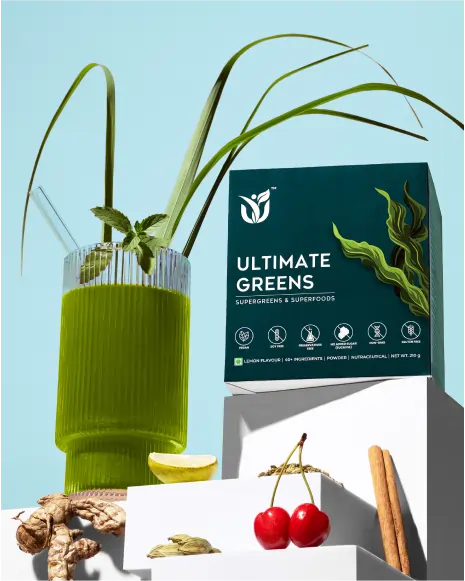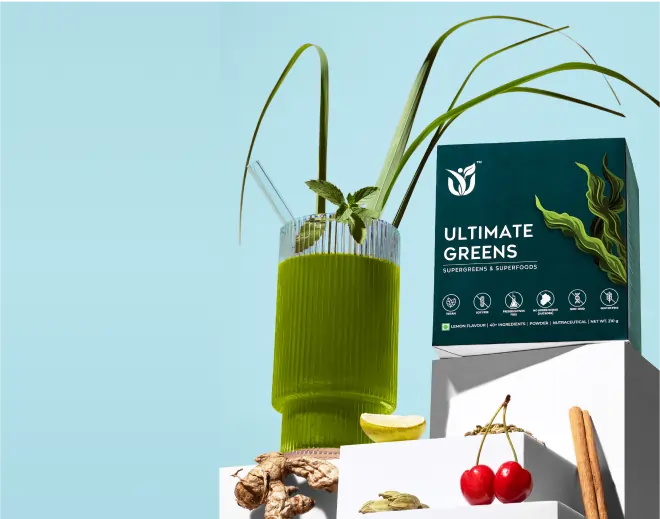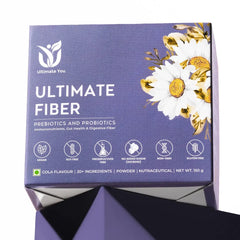Every sip we take impacts our health, whether positively or negatively. Many traditional drinks, such as sodas and artificially flavored juices, contain high amounts of sugar, artificial additives, and preservatives.
Consuming these chemical-laden beverages regularly can lead to health issues like obesity, diabetes, and gut problems. In contrast, functional beverages are designed to provide health benefits beyond basic hydration. These drinks contain ingredients like vitamins, probiotics and prebiotics, adaptogens, and plant extracts that support overall well-being.
Switching from traditional chemical-based drinks to functional beverages can be a game-changer for your health. Whether you're looking for improved digestion, better hydration, or enhanced energy levels, functional drinks offer a holistic approach to wellness. But how do they compare to traditional beverages? Let's dive deeper.
Understanding Functional Beverages and Traditional Drinks
What are Functional Beverages?
Functional beverages are drinks formulated with additional health benefits beyond basic nutrition. They often contain natural ingredients such as antioxidants, probiotics, vitamins, and minerals that help improve bodily functions. These drinks target various aspects of health, including digestion, immunity, energy levels, and cognitive function.
Types of Functional Beverages
1. Probiotic Drinks – Support gut health and digestion (e.g., kombucha, kefir, and yoghurt drinks).
2. Herbal and Adaptogenic Beverages – Help manage stress and enhance relaxation (e.g., ashwagandha-infused drinks, chamomile tea).
3. Protein and Nutrient-Rich Drinks – Aid in muscle recovery and weight management (e.g., plant-based protein shakes, whey-based drinks).
4. Electrolyte and Hydration Drinks – Replenish minerals lost through sweating (e.g., coconut water, electrolyte-infused water).
5. Cognitive-Boosting Drinks – Enhance brain function and alertness (e.g., matcha, nootropic-infused beverages).
What are Traditional Drinks?
Traditional drinks include beverages commonly consumed worldwide, such as carbonated soft drinks, fruit juices, tea, coffee, and alcoholic beverages. While some of these have nutritional value, many are processed and contain artificial additives, sugar, and preservatives that may negatively impact health.
Types of Traditional Drinks
1. Soda and Carbonated Drinks – High in sugar and artificial flavors.
2. Packaged Fruit Juices – Often loaded with added sugars and preservatives.
3. Coffee and Tea – While natural, excessive caffeine consumption can lead to side effects like anxiety and sleep disturbances.
4. Alcoholic Beverages – Can negatively affect liver health and hydration levels when consumed in excess.
Health Impacts: Functional Beverages vs. Traditional Drinks
1. Nutritional Value
Functional beverages are enriched with essential vitamins, minerals, and plant-based nutrients, offering targeted health benefits like improved gut health, enhanced immunity, and sustained energy. Many are free from artificial sweeteners and preservatives, making them a healthier alternative to traditional drinks that often contain high sugar and chemical additives.
2. Effect on Digestive Health
Functional beverages like probiotic drinks support gut microbiota, aid digestion, and reduce bloating. Herbal teas and fiber-infused drinks enhance gut function naturally. In contrast, traditional sugary sodas and artificial juices disrupt gut flora, increase inflammation, and contribute to digestive issues like acid reflux, making them a less favorable choice for digestive health.
3. Hydration and Energy Levels
Functional beverages like coconut water and electrolyte-infused foods and drinks offer superior hydration by replenishing essential minerals. Adaptogenic and nootropic drinks provide sustained energy without crashes. Traditional drinks like soda, alcohol, and excessive caffeine-based beverages often lead to dehydration, energy crashes, and metabolic imbalances, making them less effective for long-term hydration and energy support.
4. Long-Term Health Effects
Functional beverages help prevent chronic diseases with antioxidants, probiotics, and anti-inflammatory compounds while strengthening immunity and overall well-being. Traditional drinks high in sugar and artificial chemicals contribute to obesity, diabetes, heart disease, and metabolic disorders. Over time, these harmful effects can compromise long-term health, making functional beverages a smarter and healthier choice.
How to Choose the Right Functional Beverage?
Key Ingredients to Look For
1. Probiotics & Prebiotics – Promote gut health and digestion.
2. Electrolytes (Sodium, Potassium, Magnesium) – Enhance hydration.
3. Plant-Based Antioxidants – Combat oxidative stress and ageing.
4. Natural Energy Boosters (Matcha, Green Tea, Adaptogens) – Improve focus and energy levels.
5. Low or No Added Sugar – Prevents blood sugar spikes and crashes.
What to Avoid
- High fructose corn syrup and artificial sweeteners.
- Artificial colors and preservatives.
- Excessive caffeine or stimulants.
Conclusion
When it comes to choosing between functional beverages and traditional drinks, the decision is clear: functional beverages offer superior health benefits, hydration, and nutrition. By eliminating chemical-laden sodas and artificially flavored juices, you can significantly improve your overall well-being.
Making the switch doesn’t mean giving up on taste or convenience. With the rise of natural, nutrient-dense drinks, you can enjoy delicious and refreshing beverages while nourishing your body. Whether you want to boost energy, improve digestion, or enhance mental clarity, functional beverages provide a sustainable and health-conscious alternative.
So next time you reach for a drink, ask yourself: is it fueling your body or harming it?
Disclaimer
The information provided is for educational purposes only and is not intended to be a substitute for medical treatment. If you're pregnant, nursing, taking medication, or have a medical condition, it's better to consult a healthcare professional. Ultimate You does not provide any guarantee regarding the accuracy, adequacy, completeness, legality, reliability, or usefulness of the information and disclaims any liability arising from it.








